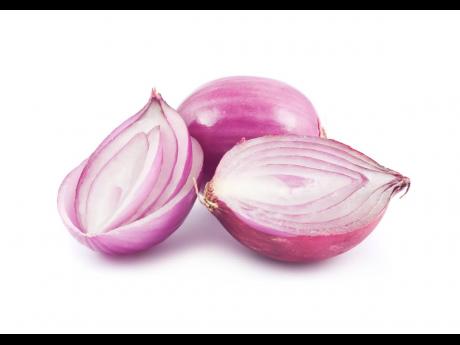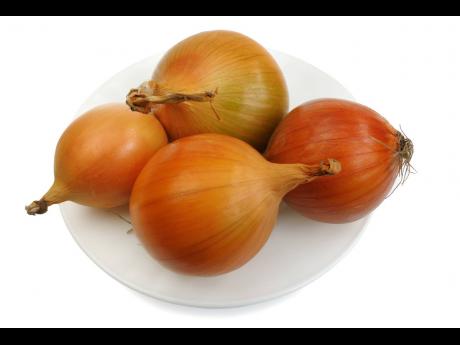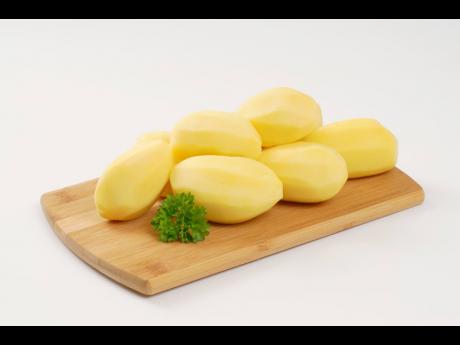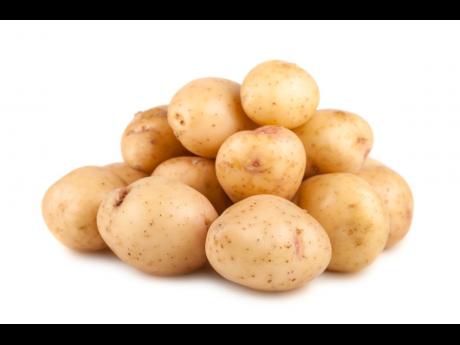MICAF reopens border for potatoes, onions
Ministry of Industry, Commerce, Agriculture & Fisheries, MICAF, has reopened the borders for the importation of Irish potatoes and onions to meet rising demand as the economy reopens.
The disclosure, which was made in response to queries sent to the ministry by the Financial Gleaner, comes after well-placed sources said there was disquiet among some farmers who fear market disruption once again, after being forced to reduce production and dispose of excess supply when the market plunged with the closure of the hotel sector and fast-food restaurants between mid-March and June.
In April, MICAF announced a temporary suspension of agricultural imports to safeguard markets for locally produced goods, including chicken, following appeals from government senator and Group CEO of food and financial services conglomerate GraceKennedy Limited, Don Wehby, and President and CEO of Jamaica Broilers Group Christopher Levy.
That’s now being lifted, which will reopen the market to more competition from imports. But the ministry, in response to questions posed by the Financial Gleaner, said it was not aware of the concerns raised around the displacement of local production from such products. MICAF said its recent assessment of agricultural commodities found that some items such as Irish potatoes and onions were in short supply.
“Given the phased reopening of the economy, it was prudent to ensure that adequate supplies were on hand to meet both local and expected visitor demand. The items allowed in the Jamaican market are those items utilised by the hospitality and tourism sectors for which adequate supplies are not currently available. For example, Irish potatoes and onions,” the ministry said.
The import quantities will be determined by demand for the products, MICAF added, while noting that in most cases the quantities required to satisfy consumption are down by 30 to 40 per cent.
MICAF says its primary extension arm, the Rural Agricultural Development Authority, RADA, conducts weekly assessments of production islandwide to ensure that allowed imports do not displace local production.
A timeline for the revision of restrictions, it said, will depend on several factors, most notably the full reopening of the economy along with the increase in visitor arrivals.
Jamaica began the phased reopening of the economy in June. Tourism activity has been ramping up since around July, but the hospitality sector, which is both a big source of jobs and a substantial market for Jamaican companies, is not yet in full swing. The same goes for other areas of the economy, which are getting back into full swing but still has to consider cut-offs for curfews, social-distancing protocols and other virus- containment measures still in play.
At the same, MICAF said it finds the argument surrounding a disquiet among farmers to be mischievous, saying it downplays the efforts made by the ministry in securing business for the agricultural sector during the crisis brought about by the COVID-19 pandemic.
A lifting of the temporary ban on agricultural imports is expected, sources say, but any thought of reopening the border to agricultural imports before December is seen as coming too soon.
Producers want more time to get their operations back to normality, amid cautious roll-outs to ensure that Jamaica does not have to go through a second lockdown.
The December timeline would suit big poultry companies Jamaica Broilers Group and Caribbean Broilers, which in June confirmed that they are likely to still be holding record-high inventory of chickens up until December.
MICAF is now requesting of farmers with concerns that they reach out to the ministry or RADA to indicate instances where they perceive themselves to have been negatively impacted by imports.
Throughout the coronavirus crisis, MICAF said it has ramped up its engagement with farmers through RADA, Jamaica Agricultural Society, Jamaica 4-H Clubs and other agricultural bodies, and that the outreach has resulted in the allocation of resources to purchase, store and distribute excess farm produce for both crops and livestock.
This initiative was done to mitigate the market fallout from the lockdown of the hospitality and entertainment sectors.
“This action was taken while simultaneously encouraging production with the provisioning of inputs such as seeds, fertilisers and the trucking of water in the areas most impacted by drought,” MICAF said.




